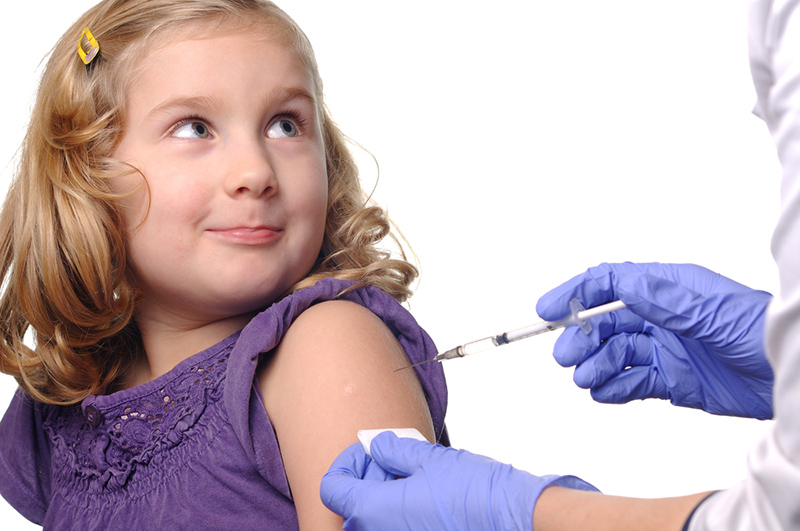
If you’ve paying attention to the news lately, vaccinations—and more specifically measles—have certainly been in the forefront of the discussion. Following a recent confirmed case of measles in King County, now is a good time to share what we know about vaccinations, and why it is so important for everyone to receive them.
Why should people get vaccinated? Measles virus, photo courtesy of Centers for Disease Control Vaccinations protect you, your family and your community from serious diseases such as measles, whooping cough and hepatitis, to name a few. Avoiding vaccinations not only puts you at greater risk of disease, it puts the entire community at risk. For vaccinations to work effectively, everyone needs to be vaccinated. When 90 to 95 percent of a community is protected, it is nearly impossible for a germ to cause an epidemic.
If you are a parent considering delaying or skipping vaccinations for your children, know that this decision impacts not only your children, but your whole community. If more than 10 percent of parents in a community were to choose to “opt out” of vaccines, the likelihood of an epidemic increases dramatically, potentially affecting everyone in the community.
Who should be vaccinated for measles?
Measles can be prevented through vaccination with the Measles Mumps Rubella (MMR) vaccine. Children should be vaccinated with two doses of the MMR vaccine—between 12 to 15 months of age and the second dose, between four to six years of age. Infants traveling outside the United States can be vaccinated earlier. In Washington state, all children are required to have the MMR for entry into a school or childcare center.
Adults should have at least one dose of measles vaccine. Two doses are recommended for international travelers, healthcare workers and students in college, trade school and other schools after high school.
What are the symptoms of measles?
Look for fever, rash, cough and red, watery eyes. Symptoms arrive late—7 to 21 days after exposure. Pregnant women, infants under six months of age, the unvaccinated and those with weakened immune systems are at highest risk from exposure to measles.
How is measles spread? Very easily!
The virus is in the mucus in the nose or throat of a person with measles, spreading easily through the air when the person sneezes or coughs. Droplets can get into other people’s noses or throats when they breathe or from contact with objects that have been sneezed or coughed on. The virus can live in the air for up to 2 hours!
People can unknowingly spread measles before they have the measles rash. The contagious period is about four days before the rash appears through four days after the rash can be seen.
What do you do if you think you may have been exposed to measles?
Stay home, avoid public places and consult your healthcare provider immediately! Be sure to call ahead before visiting your healthcare provider to avoid spreading measles to other people in the waiting room.
Measles vaccine given within three days of exposure can help prevent infection in those who are healthy and not pregnant. Immune globulin is a medication that can be used within 6 days of exposure to protect people at high risk for complications from measles.
For the latest local measles news, visit the Seattle & King county Public Health website.
 Callie Byrd, MD is a pediatrician at Valley Medical Center’s Covington Clinic South.
Callie Byrd, MD is a pediatrician at Valley Medical Center’s Covington Clinic South.
253.395.1960
View her video.

